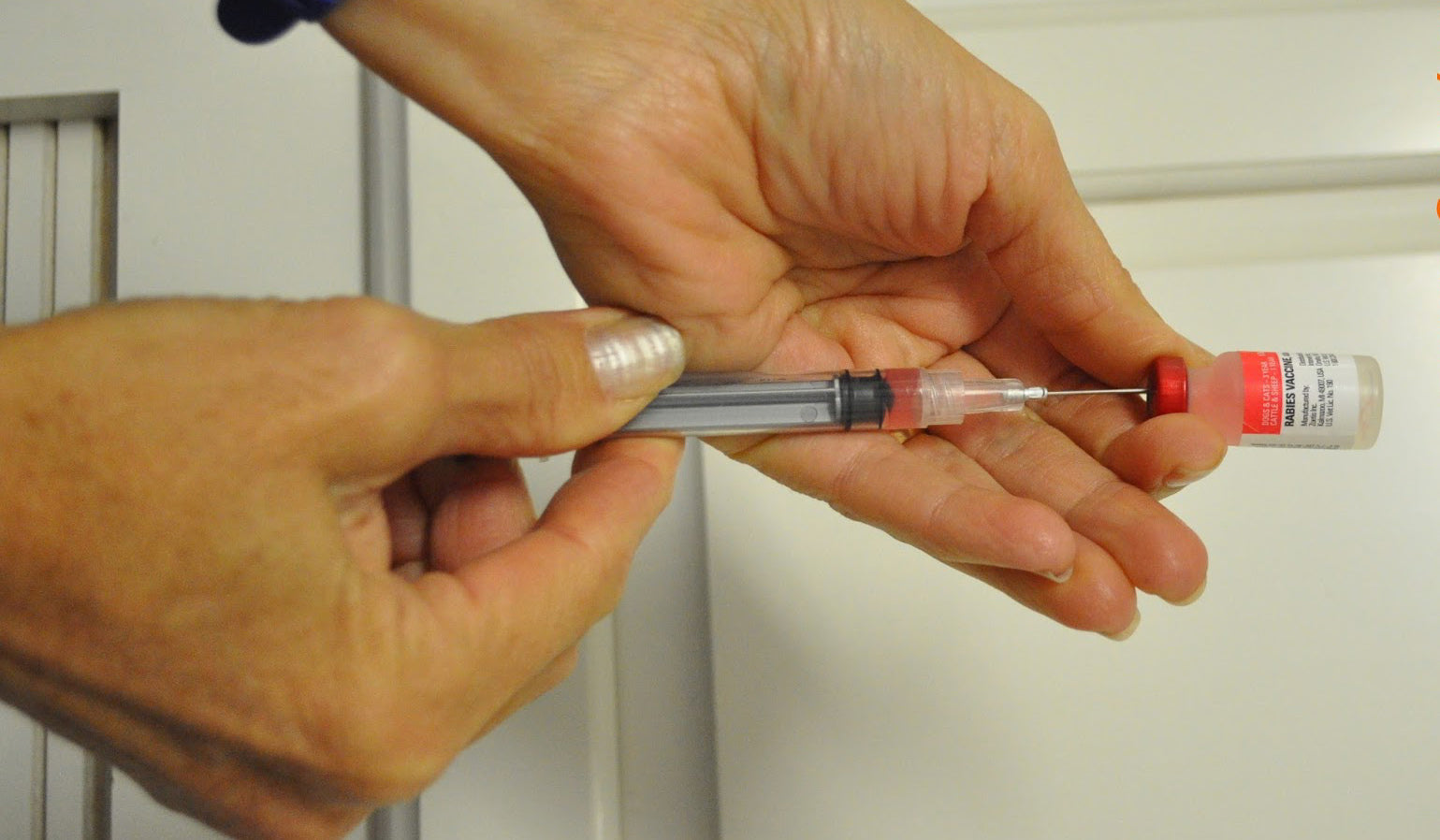This is a tale of two veterinarians practicing thousands of miles from each other in the United States. These two veterinarians have something in common with many others - a lack of understanding regarding immunology and vaccinations. While Rabies vaccination is mandatory in the United States, pets only require vaccination every three years after the initial vaccination that only gives one year duration of immunity. (The vaccine probably lasts much longer, but I'm talking about labeling here.)
As shown below, directions for use of Rabies vaccines include the word healthy in the directions. Most vaccinations are labeled for three-year duration of immunity, but there are some available that are labeled for one year duration of immunity.
INDICATIONS: IMRAB® 3 is recommended for the vaccination of healthy cats, dogs, sheep, cattle, horses, and ferrets 12 weeks of age and older for prevention of disease due to rabies virus.
Indications: PUREVAX™ Feline Rabies is recommended for the vaccination of healthy cats against rabies.
Rabvac 3 is a killed virus vaccine for the vaccination of healthy dogs, cats and horses for the prevention of disease due to rabies.
While reviewing records for a client, I noticed her dog was being vaccinated annually (EVERY YEAR) for rabies with a product labeled for one year duration, even though her dog was an adult. Normally, the first vaccination given as a puppy or kitten provides one year of immunity and every vaccine given after that point is good for three years. Why then, was this veterinarian using a product labeled for only one year in adult pets?
When I asked the owner, her response was that her dog was registered as a therapy dog, so that must be the reason. I researched the therapy dog organization, but they accepted the three year vaccine. The owner then stated, it must be the state she lived in that required annual vaccination. I looked that up too - nope, the state accepted three year vaccines. Then she called her veterinary office; they told her it was a city regulation that required annual vaccination for rabies. I looked that up - nope, the city followed the state recommendations for vaccination every three years.
By that point the owner was getting pretty frustrated. She called the veterinary office again; this time they told her they used the Imrab 1 instead of the Imrab 3 for "safety and efficacy" reasons. HUH? So my next phone call was made to Merial, makers of the vaccine. I spoke for over 45 minutes to their veterinarian on staff. My initial questioning regarded the difference between the two vaccines. After thirty minutes I was pretty convinced that the only difference is the label. I finally told the veterinarian about the situation regarding a veterinarian giving the product labeled for one year instead of using the three year product. I asked why anyone would do that.
Her answer: to get the client in the door every year. There was not a good reason to vaccinate pets for rabies every year. The three year product was SAFE and EFFICACIOUS.
The client called the veterinary office again, armed with this information and asked if they would give three-year vaccinations to her dog in the future. Their answer: NO. Her answer? I'd like a copy of my records please....
In my next blog I'll tell you what veterinarian #2 said regarding rabies vaccination of unhealthy pets...
Check Out Dr. Judy's Vaccine Resources
Disclaimer: This content is for informational purposes only and is not meant to diagnose, treat, or replace consulting a primary veterinarian for individualized care.

